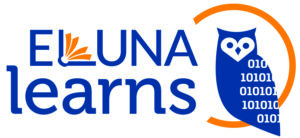Register Now/Watch the recording on demand!
Session Q&A
Wednesday, January 24, 2024. 1:00 pm – 4:00 pm. On Demand – Access for a year post event.
Agenda:
- 1:00 pm – 1:05 pm. Introduction
- 1:05 pm – 1:50 pm. Discovering and Delivering Discovery Data
- 1:50 pm – 2:00 pm. 10 minute break
- 2:00 pm – 2:45 pm. Bridging Alma and Esploro: Digitizing University of Miami Music Theses
- 2:45 pm – 2:55 pm. 10 minute break
- 2:55 pm – 3:40 pm. Using chatGPT to Create Norm Rules for Alma
Note, schedule times are approximate. Schedule may shift slightly during the event.
Presentations:
Discovering and Delivering Discovery Data. Lynne Jones, Electronic & Continuing Resources Librarian, University of Wisconsin – Milwaukee.
Primo Analytics provides libraries with a relatively low-investment way to learn more about their users’ discovery behavior. Analytics reports can be used to create targeted user studies and surveys, or they can serve as an alternative to these often time-intensive projects. This session will introduce the breadth of data available in Primo Analytics and a set of shared analyses that any institution can use to make data-driven decisions about discovery. After the initial setup, these reports can be used year after year with minimal updates to assess use and monitor the impact of configuration changes. Attendees will be able to follow along using the shared reports and see how, with just a little tweaking of filters and bins, they can turn basic analytics reports into compelling, actionable data visualizations.
Bridging Alma and Esploro: Digitizing University of Miami Music Theses. Melia Jean-Baptiste, Digital Initiatives Metadata Librarian, University of Miami; Jason Cohen, Research Impact Librarian, University of Miami; Anna Dimoula, Scholarly Communications Librarian for the Performing Arts & Humanities, University of Miami; Daniela Rodriguez, Library Technician, University of Miami’s Weeks Music Library.
In 2019 the University of Miami implemented the Esploro platform as its institutional repository (Scholarship@Miami), which includes, open access research and scholarly works created by faculty, students, and staff of the University. The repository showcases researchers’ profiles, research collections, academic units, and diverse asset types across the university. As a pilot initiative, the Music Library began digitizing its collection of theses and dissertations. This stemmed from an ongoing reorganization of the Music stacks. While processing the theses, briefly catalogued in Alma, the records would need updated metadata for ingest to Esploro. After trial and error, the MARC records were mapped to the Esploro CSV format using a python script built with Chat GPT. This presentation will cover UM’s background with Esploro, the creation and execution of the music theses digitization project and how Chat GPT helped with the mapping and subsequent ingest to Esploro.
Using ChatGPT to Create Norm Rules for Alma. Jill Strykowski, Cataloging & Metadata Analyst, San Jose State University.
About a year ago the news media blew up with talk of ChatGPT. This event coincided with a time when SJSU was struggling to create some Normalization Rules for MARC record display in Alma/Primo VE. Looking for a way to introduce myself to this newly available AI technology, I tried using it to help write the needed code. I was unsuccessful at the time, but the experiment was a great way to learn about GPTs. In this talk, I will share what I learned from these experiments. I will also share some developments in the AI space that have taken place in the last year, which should allow us to build a norm-rule-writing AI assistant in the near future.

